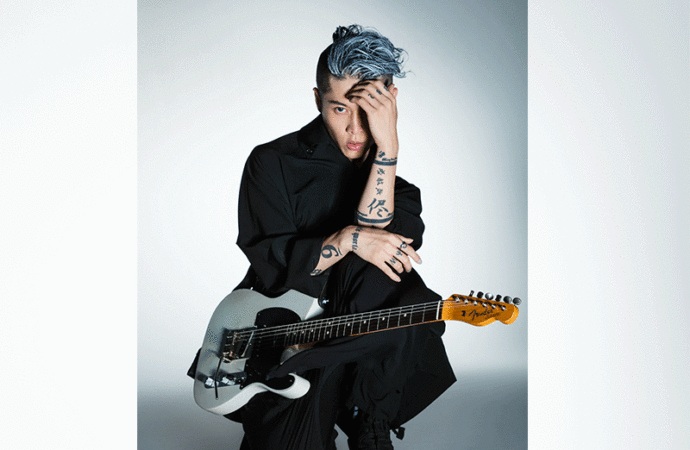All responsible to deal with Rohingya crisis, says Miyaki

UNHCR Goodwill Ambassador and Japanese singer Miyavi has said every single country needs to get involved in a conclusive way to end Rohingya crisis and give Rohingya people a safe and bright future.
"This is not a local issue. This is global issue. Every single country needs to get involved to have a permanent solution to the crisis," the Japanese musician, who has just spent couple of days visiting Rohingyas in camps, told UNB in an interview.
Since 25 August 2017, an estimated 688,000 Rohingya have crossed into Bangladesh fleeing violence in Myanmar's Rakhine State, increasing the total Rohingya population in Cox's Bazar to over a million.
Born in 1981, Takamasa Ishihara, better known by his stage name Miyavi, is a singer-songwriter, guitarist, record producer, and actor.
Emphasizing on importance of global unity on Rohingya issue, the Japanese actor said, "The whole planet is like a big apartment. If one of the rooms gets burned, the entire apartment might get affected."
On this planet, the UNHCR Goodwill Ambassador said, all are responsible to deal with the Rohingya crisis.
He said there are some problems that keep happening in the world and all know why those conflicts are happening.
"But we don't know how to deal with those problems or we know how to deal with but don't do that," Miyavi said adding that he strongly feels that there is something to do to that end.
The UNHCR envoy said he is going to start his next phase of global tour in March to spread the message of Rohingyas globally so that the international community keeps supporting Rohingya people. "Music is a global language. It can ping people together."
He, however, said music cannot save anyone in the battlefield fighting against people with guns. "But music might be able to prevent conflict and change people's mind towards positivity."
Responding to a question, he said he will perform in a number of countries from March that include Japan, China, Singapore, France, the United Kingdom, Russia and the United States. "I am lucky to be able to play music in many different places."
Miyavi, also a philanthropist, has gained international recognition and acclaim for his unique guitar style, using his fingers instead of a pick to create an elaborate sound both musically and rhythmically.
The UNHCR Goodwill Ambassador who spent two days in Rohingya camps said Rohingya children generate strength and they ping hopes when they smile. "It's our responsibility to protect them."
He has used his talent, voice and platform to help support various UNHCR campaigns, including #WithRefugees and the Nansen Refugee Award, at which he performed in 2017.
Responding to a question on Bangladesh, Miyavi said, "To be honest, this country is not that much rich compared to other countries. But it is really, really generous to open their border. It is really impressive."
Terming the Rohingya crisis a very old one, he laid emphasis on permanent solution to the crisis and sought role from all.
"In the camp, we met an old man who came to Bangladesh in 1992. He went back to Myanmar in 1995. He came back again to Bangladesh after 20 years," Miyavi said seeking a permanent solution to the crisis.
He said the Rohingyas living in Bangladesh want to go back to their homes but they want to see that a conducive environment is created in the Rakhine State so that they can return homes safely.
Commenting on his first Bangladesh visit, he said it was really impressive and successful. "It's very important to come here before I start my world tour. We can start creating something new. Now I want to let people know around the world about the situation what I witnessed in the camps."
"It's our responsibility to keep supporting them (Rohingyas)," Miyavi added.
Miyavi's ongoing promotion of UNHCR's global work on his social media channels has helped raise awareness of the refugee cause with a much wider audience. He has been particularly vocal on the need for refugee children to receive quality education.
He was appointed as a UNHCR Goodwill Ambassador in November 2017.
In 2015 Miyavi undertook his first visit to learn about UNHCR's frontline work, travelling to Lebanon and performing his song "The Others" with refugees he met there.
The music video was released in 2016 - directed and produced by UNHCR Special Envoy Angelina Jolie and Miyavi - featuring refugees from around the globe.
Miyavi visited Lebanon again in 2016 to learn more about refugees' experiences, as well as Thailand in 2017 to meet Karen refugees from Myanmar.
